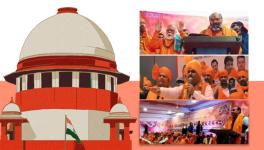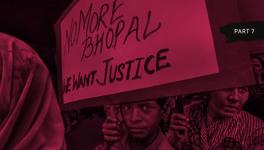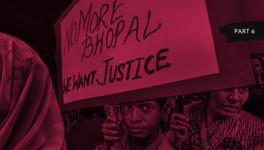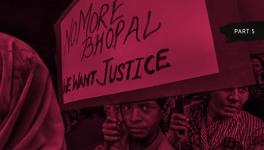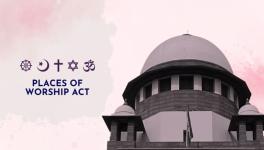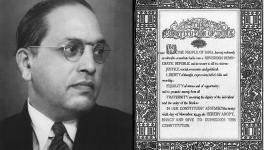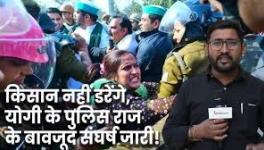Contempt Notice on Bhushan Will be Our Democracy’s Defining Moment
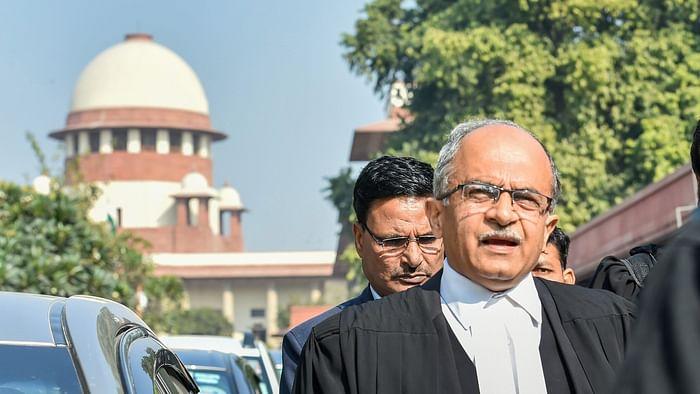
Given his reputation as a doughty fighter for the rights of people and for preserving the country’s democratic ethos, it should not surprise anyone that advocate Prashant Bhushan has refused to apologise to the Supreme Court for the two tweets he posted in June—and for which he was served a notice of contempt by it. There is, in his reply to the notice of contempt, an expression of regret for what was factually incorrect in one of his tweets, but that is as far as Bhushan goes.
His reply, otherwise, is a compendium of cases and instances that, over the last six years, have “contributed to the decline in the reputation of the Supreme Court.” Bhushan’s narrative shows that the Supreme Court has again, as it had during the Emergency, “failed to act as the guardian of the Constitution and custodian of fundamental rights of the people.”
Some of the cases that Bhushan cites in his reply are controversial because of the allegations of corruption he levels against some judges. Or, because he feels that these judges sought to give comfort to the Union government, or, for their “indifference” to protect the rights of the poor and religious minorities. His reply seems to have set the stage for a bruising battle ahead.
Bhushan has cited these controversial cases to make a larger philosophical point—that criticism of the apex court facilitates the administration of justice. In doing so, he quotes eminent jurist HM Seervai’s book, Constitutional Law of India, which says: “…A judge who makes public pronouncements which throw a grave doubt on his impartiality, himself becomes an offender against the administration of justice.”
Since such a judge can be removed only through the cumbersome procedure of impeachment, Seervai thought the “interest of justice itself requires that there should be public criticism of the impropriety of making such public pronouncement.”
Wonder what Seervai would have said about Justice Arun Mishra hailing, in February, Prime Minister Narendra Modi as a “versatile genius, who thinks globally and acts locally.” Justice Mishra is one of the three members of the Supreme Court bench that served the notice of contempt on Bhushan for his two tweets, one dated June 29 and the other June 27.
The June 29 tweet said: “CJI [Chief Justice of India] rides a [Rs] 50 lakh motorcycle belonging to a BJP leader at Raj Bhavan Nagpur, without a mask or a helmet, at a time when he keeps the SC [Supreme Court] in Lockdown mode denying citizens their fundamental right to access justice!”
Bhushan, in his reply, expresses regret for failing to notice that the motorcycle was at a standstill and, therefore, Chief Justice Sharad A Bobde was not required to wear a helmet. But he then rationalises his tweet: “While the chief justice…was not allowing regular functioning [of the Supreme Court] for four months because of the COVID pandemic, he was seen on a motorcycle in a public place with several people around him, without a mask. This seemed incongruous to me.”
He says it was incongruous because the lack of regular functioning of the Supreme Court meant that many urgent matters—such as habeas corpus petitions filed by detainees in the Supreme Court or the challenges to the Citizenship Amendment Act and the abrogation of Article 370—were not getting heard. Bhushan says his view was echoed by a slew of legal associations and former justices like AP Shah.
He turns characteristically combative in his defence of the second tweet, which reads: “When historians in future look back at the last 6 years to see how democracy has been destroyed in India even without a formal emergency, they will particularly mark the role of the Supreme Court in this destruction, & more particularly the role of the last 4 CJIs.”
The last four Chief Justices include Justices JS Khehar, Dipak Misra, Ranjan Gogoi and Bobde. Bhushan faults them for allowing the “emasculation of our democracy” by their acts of “commissions and omissions”— and goes on to furnish an array of evidence to sustain his charge.
The foundation of his criticism is borrowed from, How Democracies Die, the much-celebrated book by two Harvard professors, Dr Daniel Ziblatt and Dr Steven Levitsky, published in 2018. They argue that democracy, in modern times, is subverted not by coups, but by elected governments changing the rules of the game. There are two constitutional devices designed to prevent the elected governments from turning undemocratic.
“One, there are some inviolable rights of the citizens that a government cannot take away. Two, the political majority must exercise its powers through well established procedures and institutions that cannot be bypassed,” Bhushan points out. He, however, asserts that the “executive and legislature in the past six years” have systematically dismantled democracy, “particularly during the term period of last 4 CJIs.”
This has happened because of the abdication by the Supreme Court of its constitutional duty to protect basic constitutional values. “The court surrendered while tyranny and majoritarianism gained a deep foothold in the country,” Bhushan says.
As evidence, he points out that the Supreme Court did not hear for months even “habeas corpus petitions and challenge to the lockdown and denial of internet in Kashmir. Even when they were heard, they were frequently adjourned without any substantive relief.” In fact, this trend dates to the months before Bobde became Chief Justice, in November 2019.
For instance, Justice Gogoi as Chief Justice displayed a “similar reluctance to decide habeas corpus petitions concerning detentions of several Kashmiris.” It was during his tenure that Article 370 was abrogated, yet the Court did not show urgency to handle the issue. “Thus, by delay, the government’s actions have been made a fait accompli and difficult to reverse,” Bhushan notes.
All this, he claims, was in sharp contrast to the alacrity shown by Chief Justice Gogoi to hear the Ram Mandir dispute. This was seemingly because his tenure as Chief Justice was characterised by a “disturbing proximity to the executive and a disregard for fundamental rights of citizens.” For instance, he routinely began to accept evidence in the “form of sealed covers” from the Union government in a number of high-profile cases.
And then, four months after retirement, Justice Gogoi was nominated to the Rajya Sabha. Bhushan cites a range of legal luminaries to say that Justice Gogoi’s nomination to Rajya Sabha “raised serious concerns of quid quo pro in relation to several important judgements delivered by the ex-CJI in favour of the Union government.”
The most controversial aspect of Bhushan’s reply pertains to alleged instances of corruption dogging some Supreme Court judges and their alleged misconduct. Some of these cases involved some Supreme Court judges alone; in others, there seemed a nexus between them and the political class.
As an example of the first type, Bhushan cites the Prasad Education Trust case, the “facts and circumstances” of which “suggest that Chief Justice Dipak Misra may have been involved in the conspiracy of paying illegal gratification” in it. Included in the first type is also a case on sexual harassment allegations against Chief Justice Gogoi.
The second type involves, for instance, the drama surrounding what is known as the Birla-Sahara papers, which refer to the documents seized by the Income Tax Department during its raids, in 2013 and 2014, on the Aditya Birla group of companies and Sahara Company. These documents showed that payments had been made to a clutch of officials and politicians, including to “Gujarat CM”.
When a challenge was mounted against the appointment of KV Chowdary, who was in-charge of the income tax investigation, as the country’s Chief Vigilance Commissioner in 2015, the matter was listed before the bench of Justice JS Khehar and Justice Arun Mishra. The issue of the Birla-Sahara papers, too, came up during the hearing.
Bhushan states: “It was submitted by me in the hearing that it would not be appropriate for the bench to push through with the hearing of this matter at a time when Justice Khehar’s appointment file was pending with the prime minister, since this case also involved investigations into the payments made to the prime minister as well. After showing some resentment and anger, the court reluctantly adjourned the matter to January 11, 2017.”
After Justice Khehar was sworn in as chief justice on January 4, 2017, a new bench was reconstituted. It was headed by Justice Arun Mishra. “The Birla-Sahara matter was sent to this bench. The judges heard the matter at some length, and finally dismissed the case… In particular, they said that high constitutional functionaries cannot be subject to investigation on the basis of such loose papers,” Bhushan recollects.
Bhushan’s reply states that when Justices Khehar and Arun Mishra were hearing the case, the latter had hosted at his Delhi and Gwalior residences the wedding of his nephew. He states, “A photograph of Shivraj Singh Chouhan, the chief minister of Madhya Pradesh, attending the reception at Gwalior also appeared in a newspaper. This is significant because Chouhan was one of the alleged recipients of money” from Sahara.
On August 9, 2016, then Arunachal Pradesh chief minister Kalikho Pul committed suicide, barely three weeks after he was unseated by a judgement of a Constitution Bench of the Supreme Court headed by Justices Khehar and Deepak Misra. Pul left behind a 60-page suicide note, in which, according to Bhushan, “he says a demand of Rs 49 crore was made for a favourable judgement by the son of Justice Khehar. He also mentioned that another demand of Rs 37 crore was made by the brother of Justice Dipak Misra.”
Bhushan says the two cases—the Birla-Sahara papers and the Kalikho Pul suicide note—raise “questions about the highest constitutional positions in our country—the Prime Minister and the Chief Justice of India.”
But this is not where Bhushan’s list of charges against Supreme Court judges ends. He refers to the unprecedented decision of four senior- most Supreme Court judges to hold a press conference, in January 2018, to inform the nation about the “Chief Justice [Misra] abusing his power as the master of roster in selectively assigning important and politically sensitive cases to particular benches of junior judges of his choice, in an arbitrary manner, without any rational basis.”
Bhushan says though the senior judges did not mention it explicitly, “it was clear that the assignment of such cases to certain junior judges was for achieving a particular result, which in most cases was be seen to be in tune with the wishes of the government.”
Given what Justice (Retd.) Kurian Joseph, who was one of the four judges who held the press conference in January 2018, said to the media —“Someone from outside was controlling the [then] CJI, that is what we felt”—it does seem the notice of contempt to Bhushan, and his reply to it, has all the markings of becoming a defining moment for our democracy unless something gives.
The author is an independent journalist. The views are personal.
Get the latest reports & analysis with people's perspective on Protests, movements & deep analytical videos, discussions of the current affairs in your Telegram app. Subscribe to NewsClick's Telegram channel & get Real-Time updates on stories, as they get published on our website.











